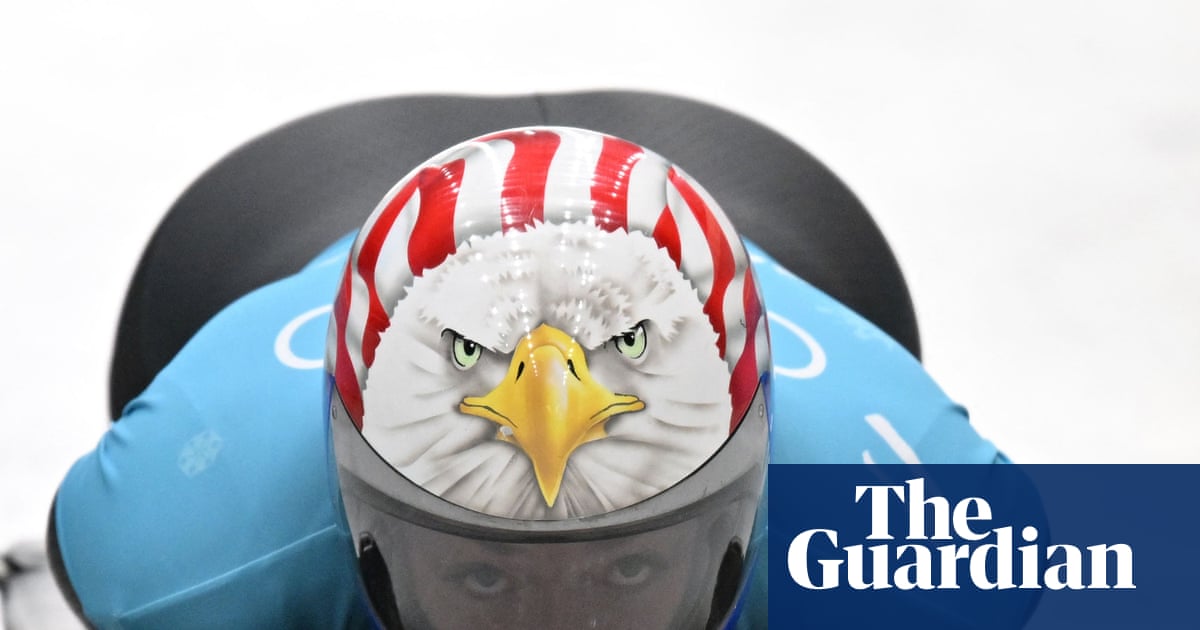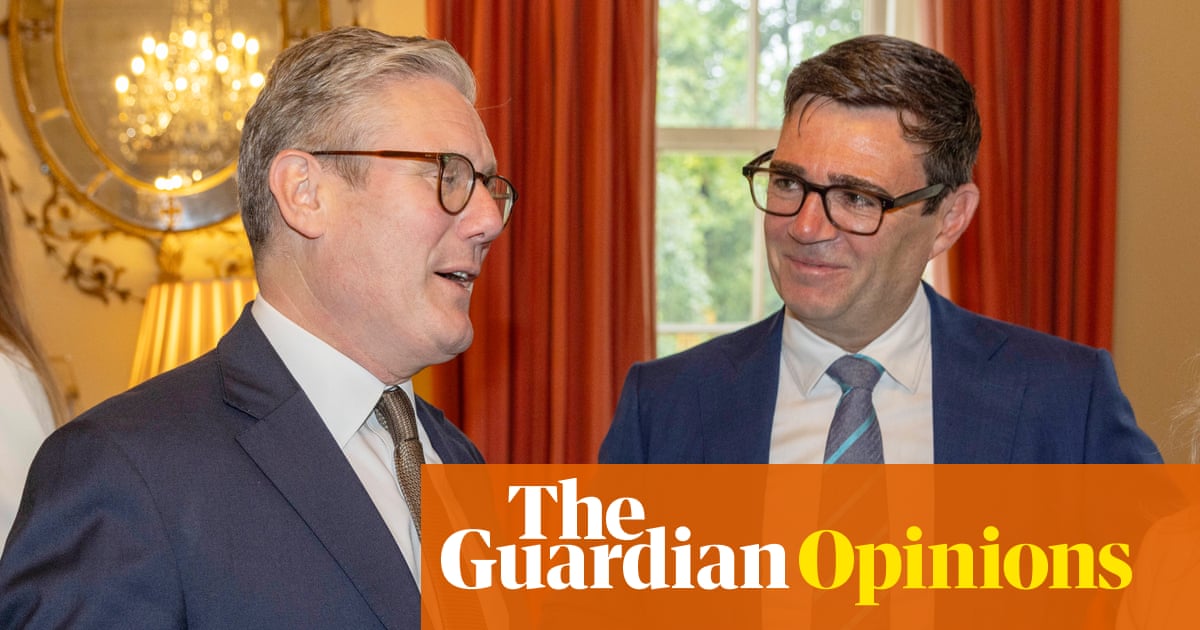If Zohran Mamdani had not intended it as a campaigning opportunity, he probably wouldn’t have worn a full suit – the universal candidate’s uniform. But there he was, the 33-year-old Democratic nominee for November’s New York City mayoral election; the upstart democratic socialist who has stormed on to the national stage with a wildfire campaign on an unabashedly progressive platform of affordability in one of the world’s most expensive cities. Last Sunday, he mingled in an Arsenal bar in Brooklyn, flanked by fellow Gooner Spike Lee, peering at the big screen with a solemnity befitting the showdown with Manchester City.
Mamdani is the overwhelming favorite in the race to run the United States’ largest city, sitting 15 points clear of his nearest rival, Andrew Cuomo. Mamdani is potentially New York’s first Muslim mayor. And also its first soccer mayor.
He has waded into those waters repeatedly in the last few weeks. He launched a petition pushing back against Fifa’s dynamic pricing model for tickets at the 2026 World Cup, and demanding a price cap on resale tickets and an affordable allotment reserved for local residents. He announced the news through another of his instantly viral videos, flashing the social media savvy and political acuity that excites his supporters so much, along with a surprisingly soft touch on the ball. Then he appeared on the Guardian’s Football Weekly podcast.
There’s some political theater to this, of course. Mamdani’s petition is a very, very long shot to change Fifa’s policy, even if he wins the election, as is expected. The petition’s signup page on his website includes a handy box you can check to pledge to his campaign. But Mamdani was shrewd enough to understand that Fifa was there to be dunked on, and that the expected hyperinflation on World Cup tickets – America’s disposable income is why the sport has moved so many signature events stateside, after all – dovetailed nicely with his affordability agenda.
Besides, Mamdani made a good point by highlighting that tickets for the World Cup matches staged in Mexico do have a cap on resale pricing, thanks to exactly the type of government policy he espouses. It isn’t such a long ideological leap for the candidate promising free bus fares and childcare, city-owned grocery stores, rent freezes, and a $30-per-hour minimum wage, to plead for New Yorkers to be able to attend World Cup games in their own backyard.
Mamdani treading into a kind of soccer populism, however, is less interesting for the impact it may have on the sport than the distinct possibility that he’s happened upon an untapped and useful force in American politics.
Allow Instagram content?
This article includes content provided by Instagram. We ask for your permission before anything is loaded, as they may be using cookies and other technologies. To view this content, click 'Allow and continue'.
For a great many years, major figures on the right have cloaked themselves in America’s favorite sports as a means of connecting with voters. George W Bush was an unrepentant sports nut, and a onetime owner of MLB’s Texas Rangers. John McCain was forever calling into sports talk radio shows. Mitt Romney was quick to remind the nation of his role in rescuing the Salt Lake City Winter Olympics from failure in 2002. Sarah Palin styled herself as the nation’s “hockey mom.”
And then there’s Donald Trump, who has embraced sports fully and leverages them constantly to score political points. He lambasted the NFL when much of the league kneeled during the national anthem in a reckoning with racism. Trump’s first vice-president, Mike Pence, went to an NFL game only to summarily walk out when the players kneeled, as expected.
Trump criticized the Cleveland Guardians for changing their name, blaming “cancel culture.” He turned up at an Atlanta Braves game just to do the racist tomahawk chop. He became the first sitting US president to attend a Super Bowl, between the Kansas City Chiefs and Philadelphia Eagles in February – even though Trump has historically been foggy on which the state the Chiefs are from (Arrowhead Stadium is in Missouri, for the record). Trump retains close ties to the New York Yankees ownership. He has boasted of great baseball talent in his youth – although this was a brazen lie. He showed up to tennis’ US Open and was greeted with a chorus of boos, and will pop into this week’s Ryder Cup as well.
There’s even a plausible theory out there that Trump only ever ran for president because he’d been spurned by the NFL’s club of owners, a group he was desperate to belong to, when he attempted to buy the Buffalo Bills. True or not, it’s clear that sports are essential to Trump’s political aims.
By contrast, Democratic party leaders have largely kept sports at arm’s length for the last decade. Barack Obama was a notable exception – he made sure to be seen playing enough basketball to litter the internet with compilation reels and even And1-style mixtapes, the better to distract from how much he liked to golf, or how bad he was at bowling. (Albeit not nearly as bad as George HW Bush.) Obama was the first president to publicize his own March Madness bracket. But the long-running custom of presidential nominees of the major parties cozying up to sports, in whatever way they could, ended on one side of the aisle. Hillary Clinton, Joe Biden and Kamala Harris mostly left sports alone.
Wittingly or not, Mamdani has spotted an opening to tether the left to sports. And with American football, baseball and basketball feeling all tapped out for political clout, soccer – whose American fans seem to skew progressive anyway – is an ideal foil for his platform. What sport, after all, better embodies unfettered, latter-day capitalism and its parasitical relationship with its own customer base than soccer? What sport works harder at making itself unaffordable to its traditional fanbase? Where else will Mamdani find better similes for his kitchen-table issues?
Tax the rich? Let us now speak of the world’s richest sport, wherein everybody likes to dodge their taxes.
There are limitations, of course, to how much a young, future mayor – maybe, probably – can budge his party in an ossified landscape dominated by a stubborn class of elders. But if nothing else, Mamdani might write a new playbook, or at least a new play or two, to get the left back into the conversation around sports.
-
Leander Schaerlaeckens’ book on the United States men’s national soccer team, The Long Game, is out in the spring of 2026. You can preorder it here. He teaches at Marist University.

 3 months ago
150
3 months ago
150

















































